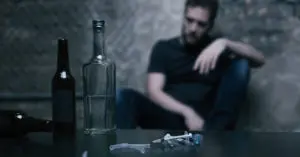Addiction treatment is planned to help individuals stop compulsive drug seeking which occurs despite obvious evidence of harm. Treatment can occur in a variety of settings, take many different forms, and last for different lengths of time. Because addiction is a chronic relapsing condition, lapses (short term) and relapses (serious and difficult to stop) are part of the natural history. One episode of treatment is not sufficient, although spontaneous recovery does occur.
MANY PEOPLE SUFFERING FROM ADDICTION DO NOT SEEK TREATMENT.
Those that do seek treatment are often ambivalent about stopping using. For this reason, specific psychological techniques such as Motivation Interviewing are important to improve the desire and promote actions towards recovery. These techniques can be taught to the social support network of the substance-using individual. For many, treatment is a long-term process that involves multiple interventions and regular monitoring. To have a successful treatment initially detoxification (the process by which the body rids itself of a drug) is necessary so that the addicted person can think clearly again. Only after detoxification can psychological techniques such as group therapy delivered by counsellors and peer support groups such as Smart Recovery and Alcoholics Anonymous be useful.
Evaluation and treatment for co-occurring mental illness such as depression and anxiety are then required. A small proportion of addiction patients suffer from more severe mental illnesses such as Schizophrenia and Bipolar Disorder.
Often the key to recovery is to diagnose and treat their co-occurring mental illness.
Addicted patients deserve a psychiatric review to untangle the interaction between their addiction behaviours and co-occurring mental illness. Often the relative contributions of the substance use disorder involving intoxication and withdrawal and the associated mental illness are difficult to disentangle. Medication is particularly useful to treat opiate use disorder, tobacco use disorder and alcohol use disorder.
Sometimes treating co-occurring disorders which are less frequent such as less Attention Deficit Disorder can be the key to unlock recovery. Remembering that co-occurring substance use disorder and mental illness are the rule rather than the exception is important in looking for a recovery for yourself or your loved one.
loved one.
IF ONLY HALF THE PROBLEM IS TACKLED, THEN RECOVERY IS MUCH MORE PROBLEMATIC OR DELAYED.
A comprehensive treatment approach is much more likely to succeed.
By Dr Zelko Mustac












